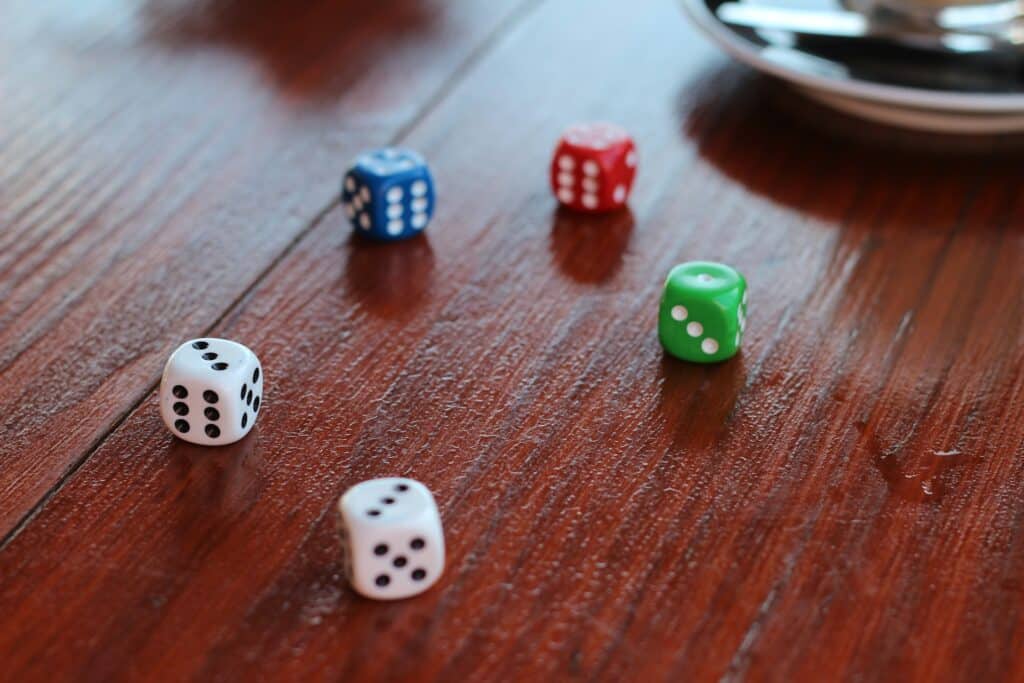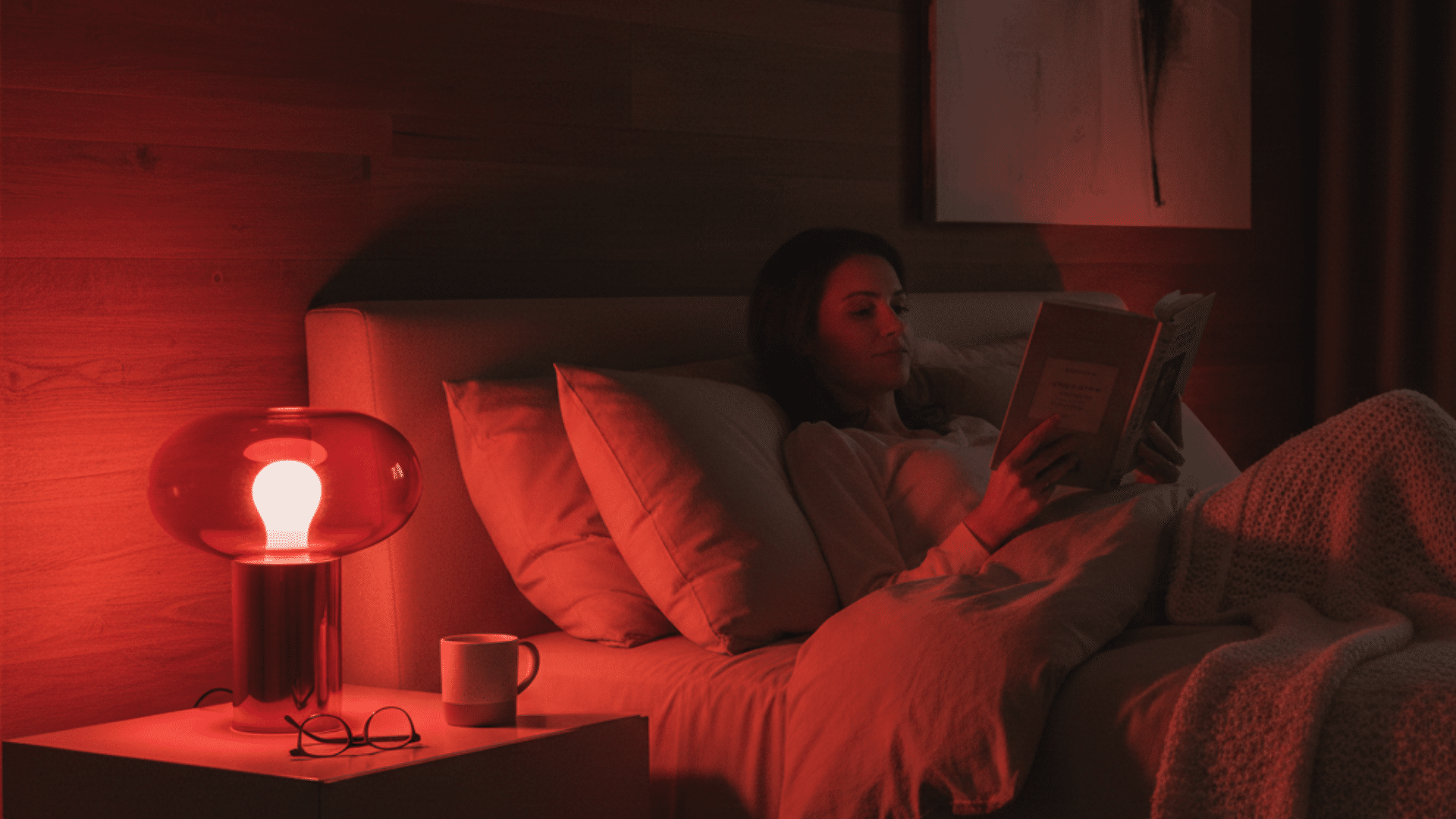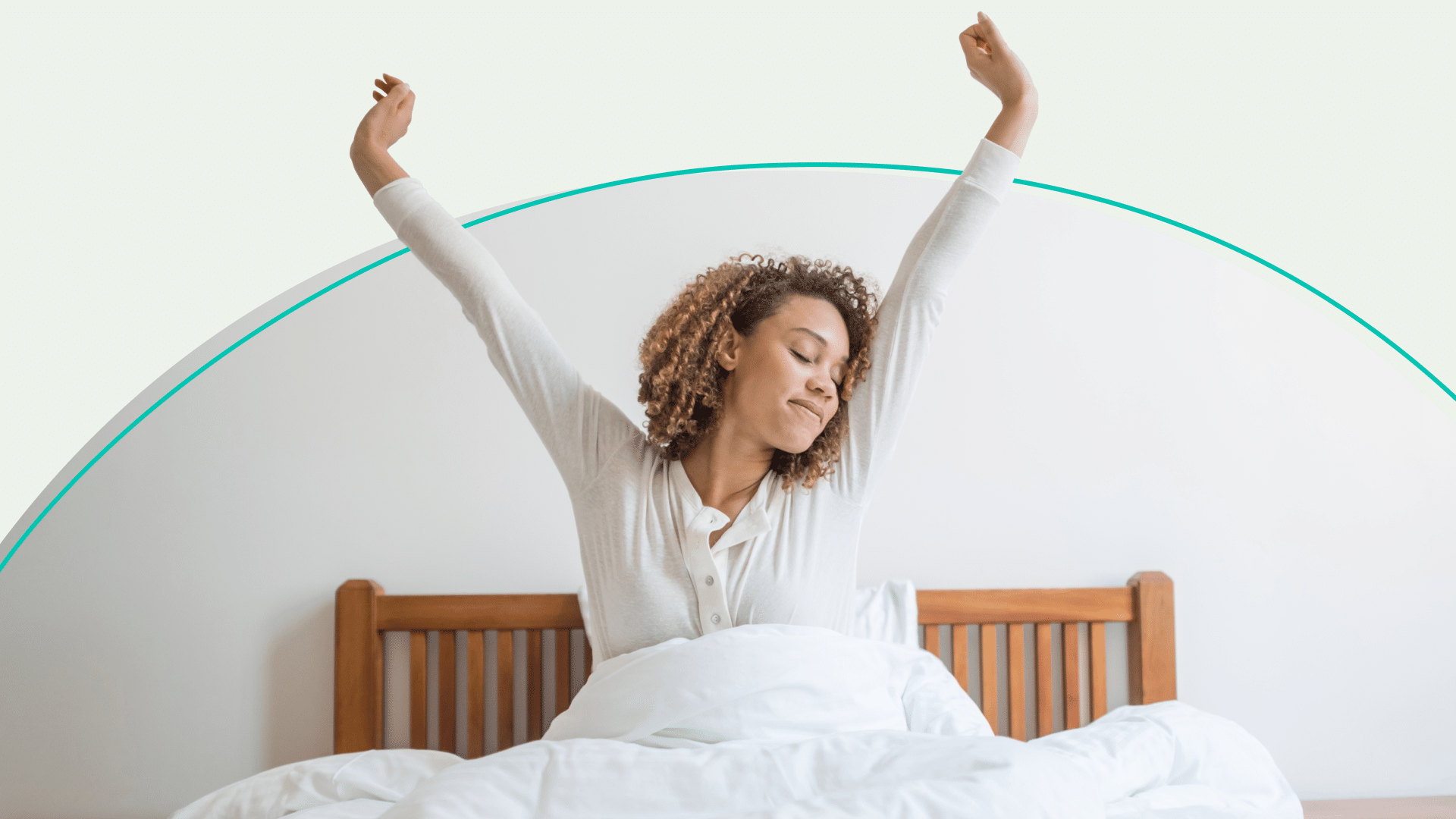Ever find yourself staring at the ceiling at 2 AM, wishing you could just fall asleep? What if the answer was sitting in your fruit bowl right now?
I’m talking about pineapple; yes, that sweet, tropical fruit we usually enjoy on a sunny afternoon. But here’s the surprising part: pineapple before bed might actually help you sleep better.
In this blog, I’ll walk you through how it works, when and how much to eat, what to avoid, and even other fruits that can help you get the best night’s rest.
By the end, you’ll know exactly how eating pineapple at night can turn restless nights into peaceful sleep.
How Pineapple Helps You Sleep
Pineapple works through three main pathways to improve your sleep quality. Each component targets a different part of your body’s natural sleep system.
Together, they create the perfect conditions for restful nights and refreshed mornings.
- Melatonin (Your Body’s Sleep Signal): Eating pineapple boosts melatonin levels by over 200% within 1-2 hours. This natural hormone tells your body it’s time to sleep.
- Tryptophan (Building Blocks for Better Sleep): This amino acid creates serotonin, which makes you feel calm. Your body then converts serotonin into melatonin for deeper rest.
- Bromelain (Nature’s Muscle Relaxer): This enzyme reduces inflammation and eases muscle tension. When your body feels relaxed, falling asleep becomes easier and more natural.
These three compounds work together to prepare your mind and body for quality sleep throughout the entire night.
Nutrients That Support Healthy Sleep
Pineapple isn’t just about melatonin. This fruit packs several nutrients that work together to improve your rest.
| Nutrient | What It Does for Sleep |
|---|---|
| Melatonin | Controls your sleep-wake cycle |
| Magnesium | Helps muscles relax and reduces tension |
| Vitamin C | Lowers stress hormones in your body |
| Tryptophan | Creates serotonin and melatonin |
| Bromelain | Reduces inflammation and promotes calm |
| Fiber | Keeps blood sugar stable through the night |
Magnesium is particularly important. Many people don’t get enough of it, and low magnesium levels can lead to restless sleep. A serving of pineapple provides a small but helpful amount.
Vitamin C might seem like just an immune booster, but it also helps your nervous system function properly. When your nerves work well, your body can shift into rest mode more easily.
When and How Much to Eat Pineapple Before Bed
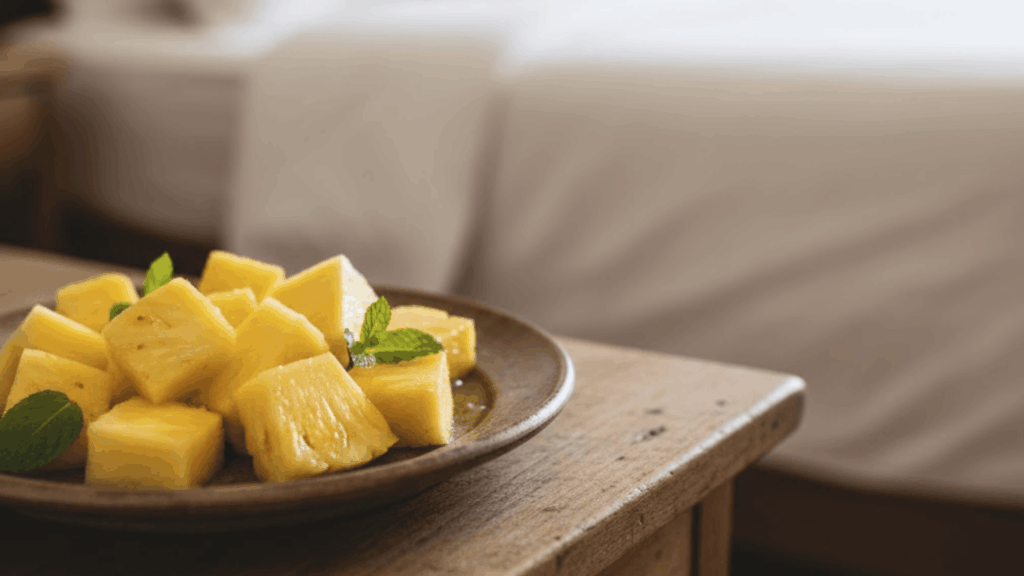
Timing makes a big difference. Don’t eat pineapple right before you climb into bed. Give your body time to process it and start producing melatonin.
Best timing: Eat pineapple 1-2 hours before you plan to sleep. This gives the nutrients time to work their magic.
Right portion: Stick to about half a cup of pineapple chunks. That’s roughly 4-6 pieces. This amount provides benefits without overloading your system with sugar.
Smart pairings: Don’t eat pineapple alone at night. The natural sugars can cause a quick spike in your blood sugar.
Instead, pair it with:
- Cottage cheese (the protein slows sugar absorption)
- Greek yogurt (adds calcium, which also helps sleep)
- A handful of almonds (healthy fats balance the sugar)
- Almond milk in a smoothie (creamy and filling)
These combinations keep your blood sugar steady through the night. You won’t wake up at 3 AM feeling hungry or jittery.
Eating Pineapple at Night: What to Watch Out For
While pineapple helps many people sleep better, it’s not perfect for everyone.
- Sugar content: One cup of pineapple has about 16 grams of natural sugar. For people with diabetes or blood sugar issues, this might be too much before bed. Check with a doctor first if this applies to you.
- Acid reflux: Pineapple is acidic. If you have heartburn or acid reflux, eating before bed may worsen symptoms because acidity can irritate your esophagus when lying down. Try earlier in the evening or skip it on bad reflux nights.
- Sensitive stomach: Some people find that pineapple bothers their stomach, especially on an empty stomach. The bromelain enzyme is powerful and may cause discomfort. If this happens, eat it with other foods or try a smaller amount.
- Moderation matters: More isn’t better. Eating a whole pineapple won’t make you sleep 10 times better. It will just give you a stomachache and too much sugar. Stick to the recommended portion.
Other Fruits That Help You Sleep
Pineapple isn’t the only fruit that can improve your rest. If you want variety or pineapple doesn’t work for you, try these options. Each one brings its own set of sleep-supporting nutrients to help you get better rest naturally.
Kiwi
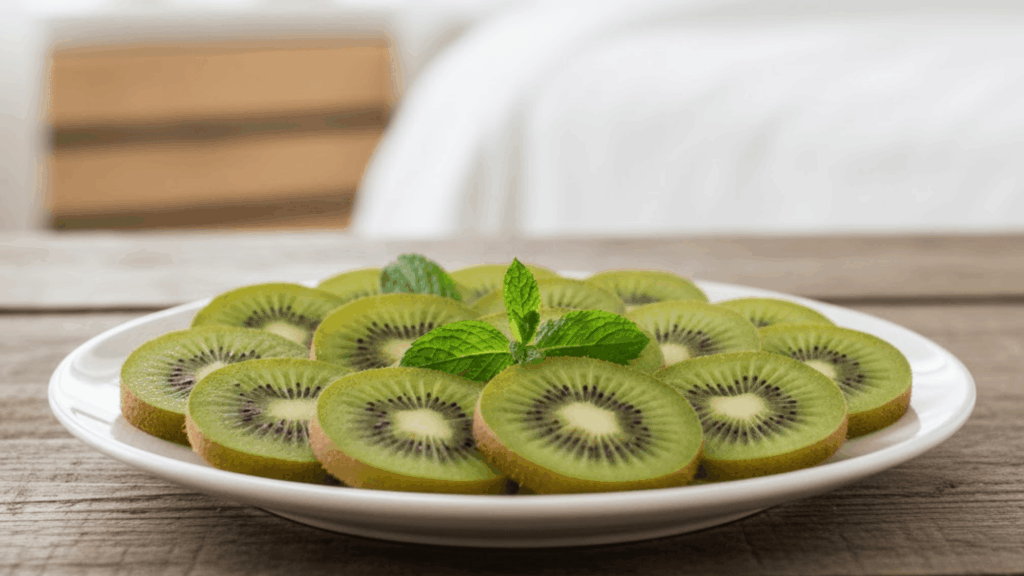
Studies show eating two kiwis before bed can help you fall asleep 42% faster. They’re loaded with serotonin and antioxidants that calm your nervous system. Kiwis also contain folate, which helps regulate sleep patterns.
The high vitamin C content supports your immune system while you rest. Many people notice they wake up feeling more refreshed after adding kiwis to their nighttime routine.
Banana
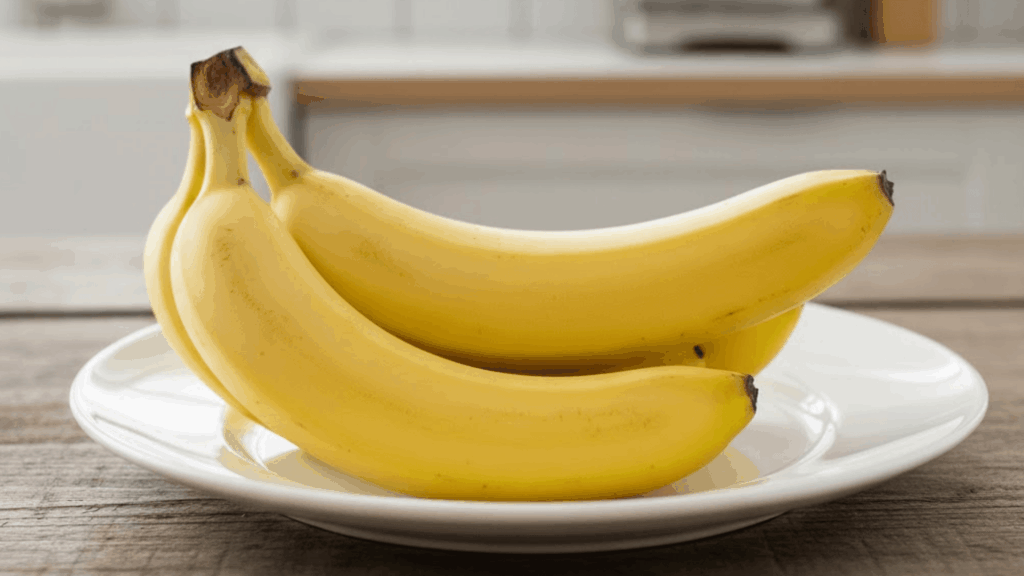
Full of magnesium, potassium, and tryptophan, bananas work as natural muscle relaxers. These nutrients help relax your muscles and nerves, making it easier to get comfortable in bed.
Many athletes eat bananas before bed to prevent nighttime cramps and leg pain. The fiber content also helps keep you full through the night. Plus, bananas are easy on your stomach and digest quickly.
Cherries
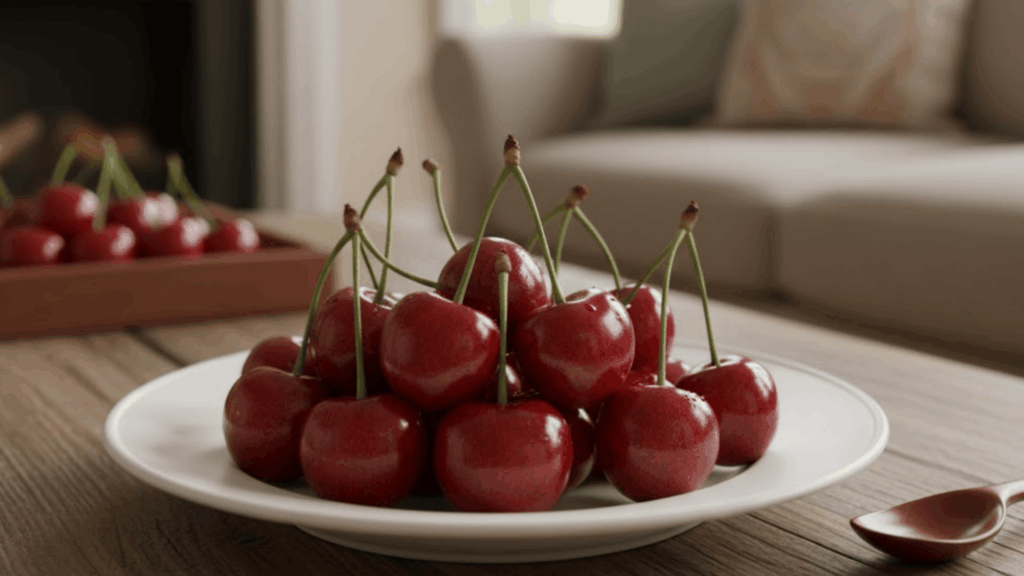
One of the few foods with naturally high melatonin levels, cherries stand out as a sleep superfood. Tart cherry juice has become popular as a natural sleep drink among people looking for alternatives to pills.
Research shows that drinking cherry juice twice daily can add nearly 90 minutes to your sleep time. Fresh cherries work well, too, though the juice is more concentrated. Both sweet and tart varieties contain melatonin.
Oranges
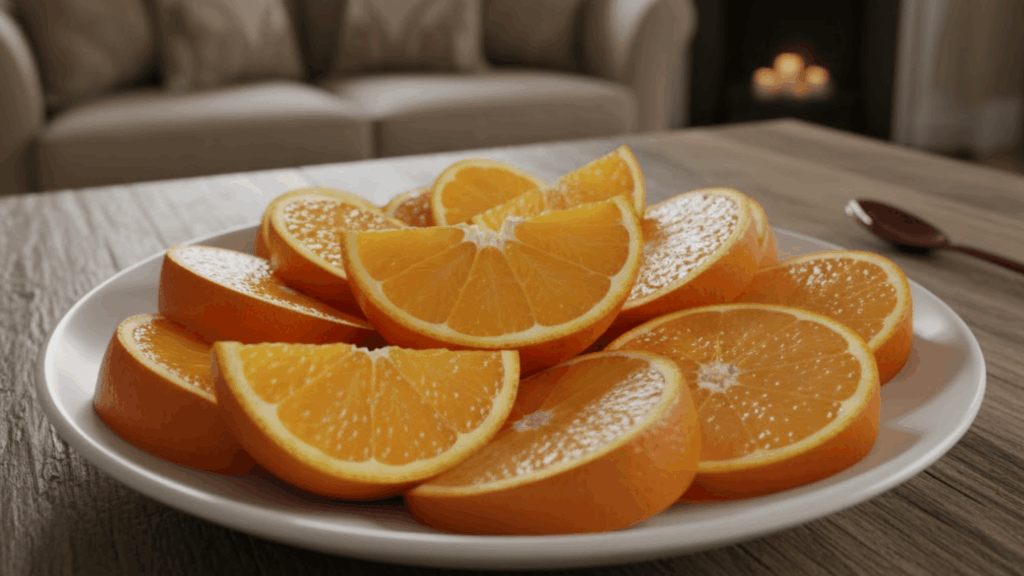
The vitamin C in oranges helps your body make melatonin more efficiently. Plus, the fiber keeps you satisfied without feeling heavy or bloated before bed.
Oranges also contain B vitamins that support your nervous system and help reduce stress levels. The natural sugars provide gentle energy that won’t spike your blood sugar.
Eating an orange about an hour before bed gives your body time to process the nutrients.
Papaya
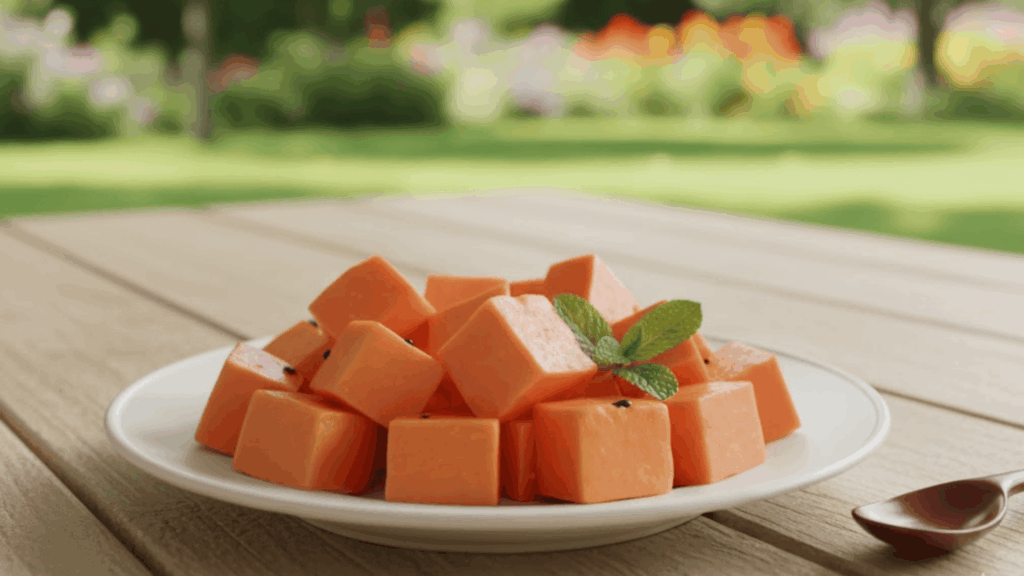
Easy to digest and gentle on your stomach, papaya helps prevent bloating that can keep you awake. When your stomach feels comfortable, you sleep better and wake up less during the night.
Papaya contains enzymes that break down proteins and support healthy digestion. It also contains vitamins A and C, which help reduce inflammation in your body.
The soft texture makes it perfect for people with sensitive stomachs at night.
Grapes
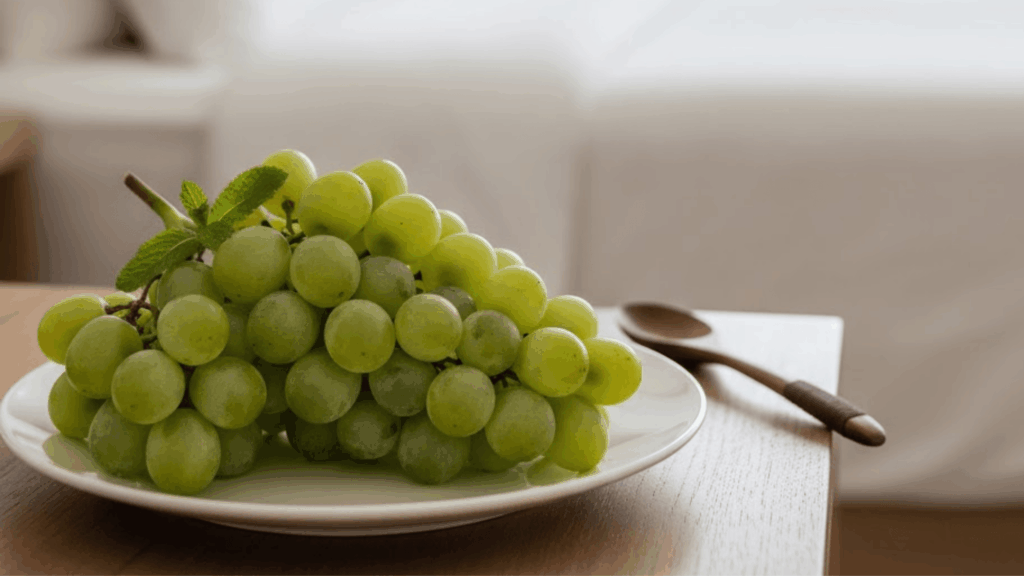
Grapes contain small amounts of melatonin that add up when you eat a serving. Red grapes have more than green ones, so choose those if sleep is your main goal.
They’re also packed with antioxidants that help your body recover from daily stress. The natural sugars in grapes are balanced by fiber and water content.
A small bunch makes a refreshing snack that satisfies sweet cravings without the guilt of dessert.
Berries
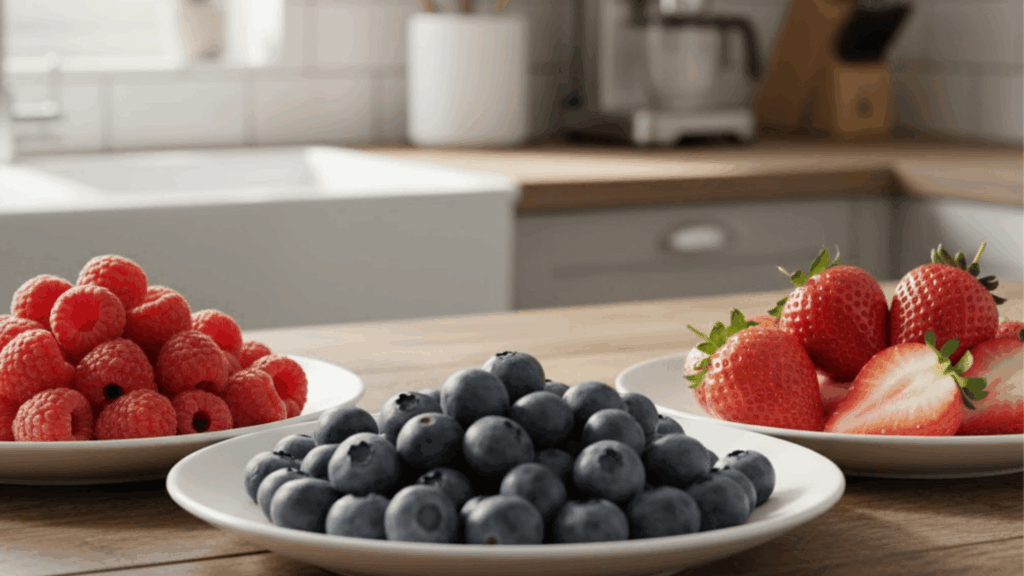
Blueberries, strawberries, and raspberries are full of antioxidants that help your body manage stress throughout the day and night.
These compounds reduce inflammation and support brain health, both important for quality sleep. Berries also contain fiber that stabilizes blood sugar levels while you rest.
The vitamin C content helps with melatonin production. Mix different berries together for a colorful bedtime snack that tastes great and helps you sleep.
Mix and match these fruits based on what you enjoy and what’s in season. Your taste buds and your sleep schedule will both benefit from trying different options throughout the week.
Easy Bedtime Snack Ideas
Need some simple ways to enjoy pineapple at night? Try these:
| Snack Name | What You Need | How to Make It |
|---|---|---|
| Pineapple Cottage Cheese Bowl | Half a cup of pineapple chunks, a quarter cup of cottage cheese, a sprinkle of cinnamon, and optional walnut pieces | Mix pineapple chunks with cottage cheese, add cinnamon on top, and toss in some walnuts if you like |
| Pineapple Sleep Smoothie | Half a cup of pineapple, one small banana, one cup of almond milk, one teaspoon of honey | Blend all ingredients until smooth and creamy |
| Grilled Pineapple Slices | Fresh pineapple rings, honey for drizzling | Cut pineapple into rings, grill for 2-3 minutes per side, serve warm with a drizzle of honey (the heat brings out natural sweetness) |
These snacks take less than five minutes to make. They satisfy late-night cravings while helping you sleep better.
What the Research Says
Scientists have studied how fruit affects sleep. A study published in the Journal of Pineal Research found that certain foods can increase melatonin levels in the blood. Pineapple was among the fruits that showed the strongest effect.
Sleep experts at the Sleep Foundation recommend eating foods rich in tryptophan and melatonin about two hours before bed. They list pineapple alongside other sleep-friendly options like bananas, oats, and almonds.
Nutritionists note that whole foods are more effective than isolated supplements. When you eat pineapple, you get fiber, vitamins, and minerals along with the melatonin. This complete package supports your body in multiple ways.
At the End
After learning how pineapple can boost melatonin, relax your muscles, and calm your mind, I’ve started seeing it as more than just a tropical treat; it’s a natural bedtime helper.
Eating a small serving of pineapple before bed helps me wind down and wake up feeling more refreshed. Of course, moderation is key, and pairing it with protein makes it even better.
If pineapple isn’t your thing, there are plenty of other fruits that can help you sleep, too. Next time you’re craving a late-night snack, skip chips and try pineapple chunks instead. You might be surprised how well you sleep.
Ready to give it a try tonight? Grab some pineapple and enjoy your sweetest dreams yet!



